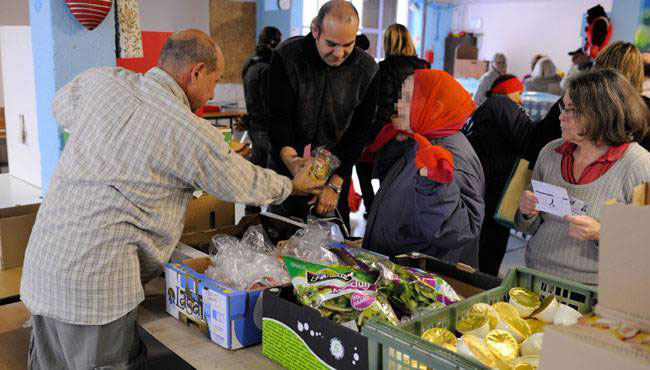France Faces New Challenges in the Implementation of the 2030 Agenda and the 17 SDGs

Are governments genuinely committed to the implementation of the ambitious Agenda 2030 they adopted last September at the highest level and will they be able to overcome the challenges of eradicating poverty, reducing inequalities, protecting nature and promoting human rights?
As the United Nations started, this Monday, July 11 2016, its first review of the new Agenda and its 17 Sustainable Development Goals (SDGs), civil society coalitions from around the world came to the high-level Political Forum on Sustainable Development in New York bringing their own findings and suggestions, demanding to be able to voice their opinions concerning their respective country’s reports. The findings of several of these national reports have been published by the United Nations, together with the launch of a “Spotlight” report that examines these issues at a global level.
Among these is ATD Fourth World, who openly voiced their opinion on the findings of the French report to the UN through the following statement :
France must now get involved in implementing a just transition from an unsustainable economy to genuinely sustainable development that leaves no one behind. This involves shifts in investments, creating decent jobs, establishing social dialogue and maintaining social protection.”
“ A country should be considered as having achieved a just transition only if poverty is eradicated and sustainability achieved. […] France, as a rich and strong country, has targets for domestic sustainability as well as international responsibilities. Common but differentiated responsibilities are fully applicable. The importance of not harming people in the process must also not be overlooked. Environmental sustainability, social inclusion and economic development have to be integrated in the French agenda.
“Agenda 2030 seeks to realize human rights for all. We cannot label a country as ‘developed’ when 8 percent of the population lives in poverty and its modes of consumption and production are depleting the resources of the planet. Countries should not be rated only by GDP but also by their environmental sustainability and access to human rights for all of their citizens. Even though France is the world’s sixth largest economy, poverty is widespread in the country and extreme poverty is persistent. Many people have to endure the violence of poverty; and inequalities weaken social cohesion and democracy.”
Challenges to the implementation of the Sustainable Development Goals in France:
- The need to integrate poverty eradication with tackling climate change;
- The need to adopt a human rights approach to sustainable development;
- The need for a better understanding of poverty;
- The need to consider people living in poverty as true actors of change;
- The need to be ambitious in order to leave no one behind in development;
- The need to extend the right to education to all;
- The need to protect the right to housing;
- The need to protect the right to decent work;
- And the need to support climate mitigation and adaptation both in France and in less affluent countries.
Click here to read the full text of ATD’s contribution : “Implementing the 2030 Agenda at Home and Abroad Presents New Challenges to France”
And “Leaving no one behind calls for far-reaching changes in the way development agencies operate” by Xavier Godinot, International Movement ATD Fourth World (in Spotlight on Sustainable Development 2016)

